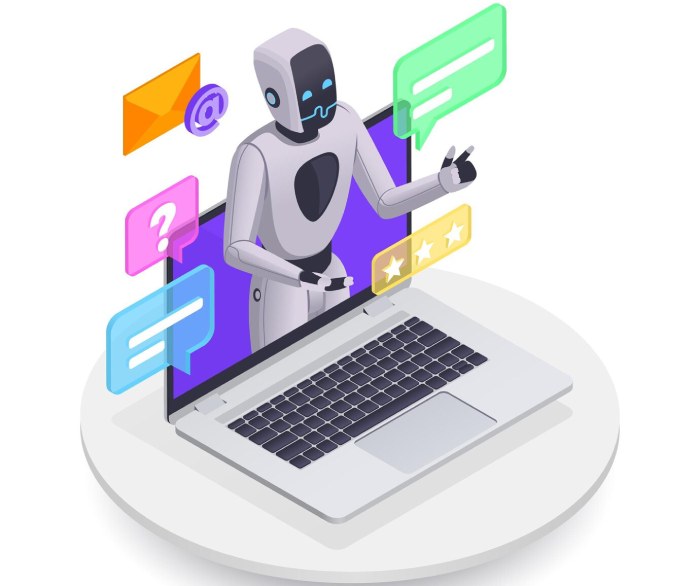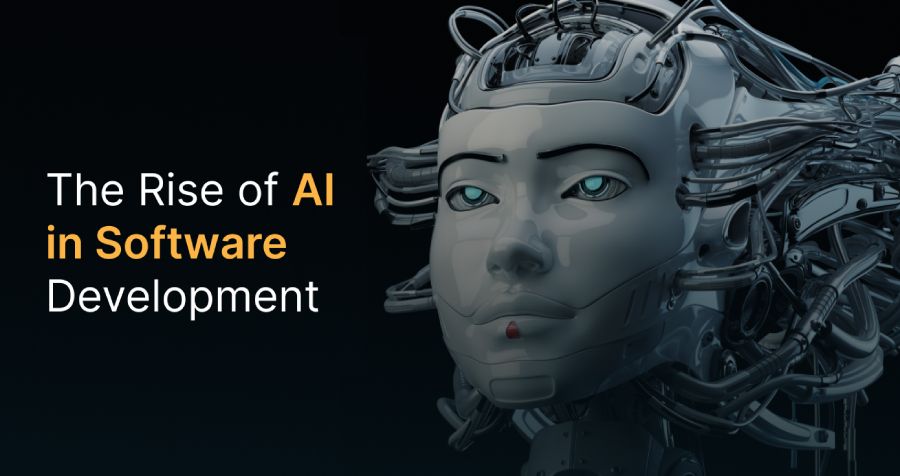
Chatbots In Customer Experience: A Deep Dive Into New Strategies
In today's digital age, the landscape of customer experience is evolving rapidly. The emergence of chatbots plays a vital role in enhancing interactions between businesses and their clientele.
As technology advances and consumer expectations adjust, the role of chatbots in customer experience has become recognized. Businesses are making great strides to leverage the role of AI and it is apparent in the use of chatbots to improve customer experience.
In this article, we explore how chatbots have affected businesses' customer service strategies. We'll look at how they affect customer experience and the best way for businesses to leverage AI Chatbots to engage their clients.
Evolution Of Chatbots In Customer Experience
Recently, AI has been a hot topic, mainly because of the new advancements in the field.
However, chatbots are not a new concept. Businesses have engaged several chatbot examples in the past through mediums like automated emails. This progressed to include responding to clients through chatbots that were programmed to respond to predefined queries with scripted answers.
Advancements in AI have allowed chatbots to evolve to a point where they can understand the context of topics and provide personalized responses to users. This is possible, particularly through Natural Language Processing (NLP), which is the computational linguistics that allows us to generate human language just as we do.
This technology can be adapted to websites, social media platforms, messaging apps, and any other scenario where humans interact with technology. It can also be used for several purposes, including customer experience,
The Role Of Chatbots In Customer Experience
Chatbots have become vital to modern customer experience strategies. It plays a pivotal role in the interactions between businesses and their customers. Their versatility and accessibility make them priceless assets for companies striving to provide seamless and efficient support channels for clients.
Benefits Of Chatbots
The benefits of chatbots in customer interactions can not be overstated. It has proven to be a great way to improve customer experience with different businesses. Here are some benefits:
Availability
They are a 24-hour system and don't need off days like humans. They provide round-the-clock assistance to ensure that customers can access support at any time, day or night. This availability goes beyond business hours, so it enables businesses to cater to global audiences across different time zones.
Instant Replies
Just like instant messaging, chatbots provide instant replies to customer inquiries. Unlike the traditional customer service channels, clients waiting time is drastically reduced. Chatbots can deliver immediate assistance, and this eliminates the frustration of waiting and has the tendency to improve customer satisfaction and retention.
Personalization
A key feature of chatbots is gathering and storing customer data (according to the privacy policy of the firm). This data equips the chatbot with the information needed to deliver personalised interactions to customers. It used information such as user preferences, purchase history, and other interactions that a customer might have made with your business over time. This improves the customer experience by making it engaging and streamlined to personalised needs.
Cost Efficiency
The initial investment for implementing a chatbot into your customer experience system may be high, but it leads to significant cost savings in the long run. Chatbots will automate routine tasks, reduce workload for human workers, and handle a large volume of inquiries efficiently. This allows a business to streamline operations and allocate resources efficiently.
Examples Of Successful Chatbot Implementations
Bank of America's Erica
Erica is a chatbot and virtual financial assistant that uses AI to provide support for customers' needs. You can ask Erica questions about saving, spending, and other forms of financial assistance. Erica personalizes user experience and helps customers with tasks like paying bills and budgeting.
Sephora's Chatbots
Sephora is heavily invested in chatbot AI technology and has cracked more than one way to implement it for their business. First is the Sephora Reservation Assistant, which uses natural language to help clients make appointment bookings at Sephora stores. Then we have Sephora's Virtual Assistant. It works as an image and colour match to enhance the customer's experience when buying makeup. For example, it will scan a face image and suggest a suitable colour match for lipsticks and eyeshadow.
Marriot Moments
The hotel and hospitality industry is not left behind in technology. Marriot Hotels developed a chatbot called "Marriot Moments" that is designed to use natural language to help guests make and manage their reservations. The inception of this chatbot increased guest engagement and satisfaction.
Strategies For Chatbots In Customer Experience
As businesses strive to enhance customer experience through chatbots, they are adopting various strategies to maximise their effectiveness and efficiency in helping customers.
Personalization And Context-Aware Interactions
Personalization is the key to creating meaningful customer interactions. Chatbots unlock this key by leveraging data and analytics through machine learning algorithms to curate responses and recommendations based on individual preferences, purchase history, and browsing behaviour. By anticipating customer needs, chatbots can deliver a more relevant and engaging experience to customers.
Integration With Other Customer Service Channels
To provide a seamless omnichannel experience, businesses are integrating chatbots with other customer service channels, such as live chat and phone support. This integration enables customers to transition seamlessly between channels while maintaining continuity in their interactions. Whether customers prefer self-service options or human assistance, chatbots serve as a central touchpoint to enhance accessibility and convenience across all channels.
Leveraging Machine Learning For Improvement
Machine learning plays a crucial role in enabling chatbots to learn and improve over time continuously. By analysing past interactions and feedback, chatbots can refine their responses, enhance their understanding of natural language, and adapt to evolving customer preferences. This repeated learning process allows chatbots to become more intelligent and effective in addressing customer inquiries, ultimately driving higher levels of satisfaction and loyalty.
Multilingual Support And Global Scalability
In an increasingly globalised marketplace, businesses need to cater to diverse customer demographics and language preferences. Chatbots with multilingual support capabilities can interact with customers in their preferred language. This helps to break down language barriers and facilitate communication on a global scale. Additionally, scalable infrastructure allows chatbots to handle high volumes of inquiries across different regions and time zones, ensuring consistent and reliable support for customers worldwide.
Challenges And Considerations
Privacy And Data Security Concerns
As chatbots handle sensitive customer information, including personal details and transactional data, businesses must prioritize privacy and data security. Businesses should ensure compliance with data protection regulations, implement robust encryption protocols, and regularly audit security measures. These are essential steps to mitigate the risk of data breaches and safeguard customer trust.
Balancing Automation With Human Touch
Finding the right balance between automation and human interaction is critical to delivering an empathetic customer experience. While chatbots excel at handling routine inquiries and tasks, human intervention is sometimes necessary, particularly for complex issues or emotional support. Businesses must design chatbot interactions that seamlessly transition to human agents when needed to maintain a human touch while leveraging automation for efficiency.
Limitations Of Chatbot Technology
Despite advancements in artificial intelligence and natural language processing, chatbots still struggle to understand complex queries, nuances in human language, and context-specific interactions. Businesses must manage customer expectations and clearly communicate the capabilities and limitations of chatbots to avoid frustration and dissatisfaction.
The Future of Customer Engagement
Modern businesses are experiencing the complexities of modern customer service with chatbots. Chatbots have emerged as powerful allies that businesses need to leverage in the pursuit of creating seamless, efficient, and personalised client experiences.
Chatbots are redefining the way businesses engage with customers through personalised interactions, multilingual support, and beyond. Chatbots are charting the way into a new era of business-client connection and customer satisfaction.

Law Firm Management: How Technology is Driving Efficiency

Most Popular Social Networks: Dominating Online Platform







